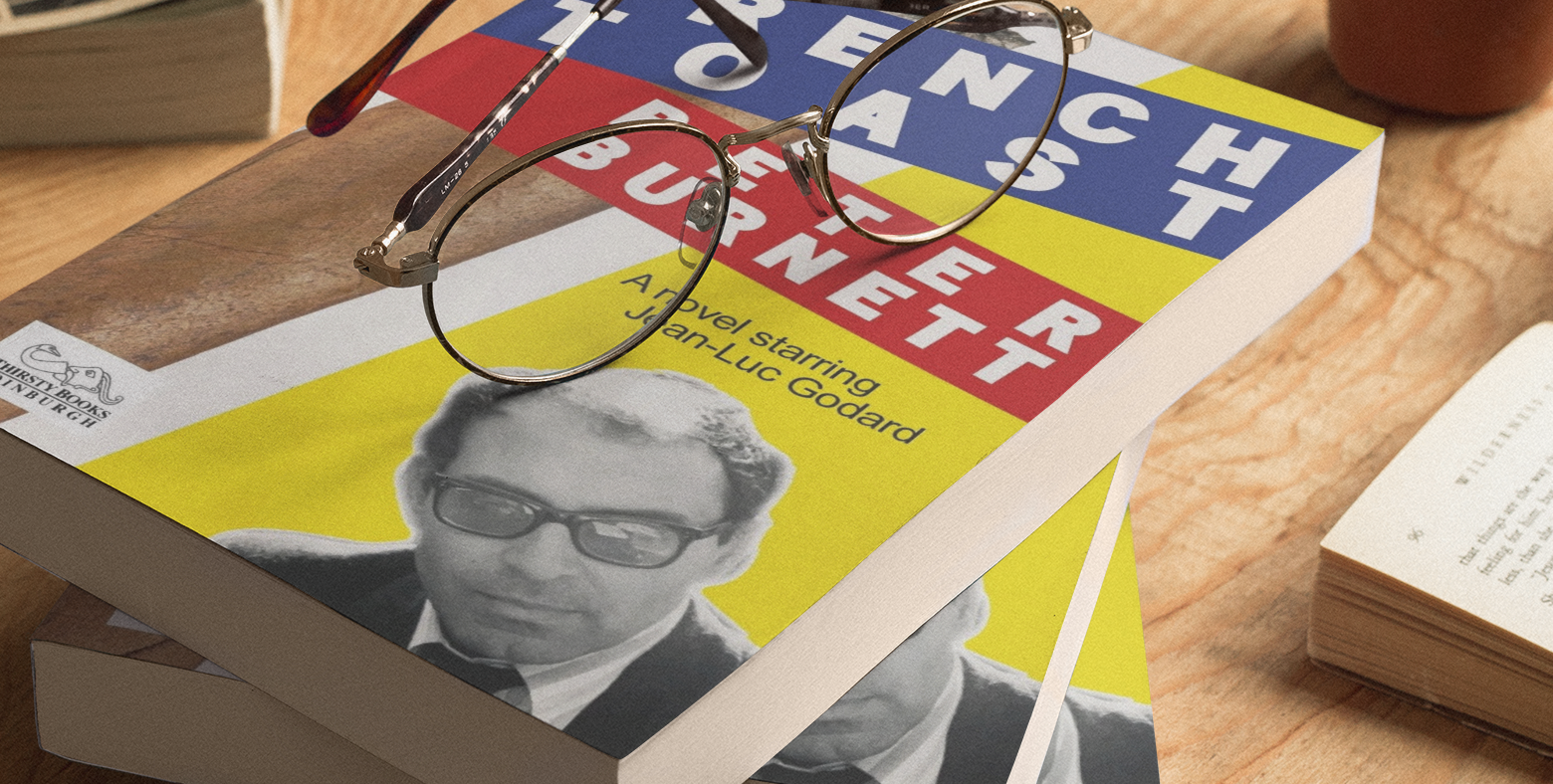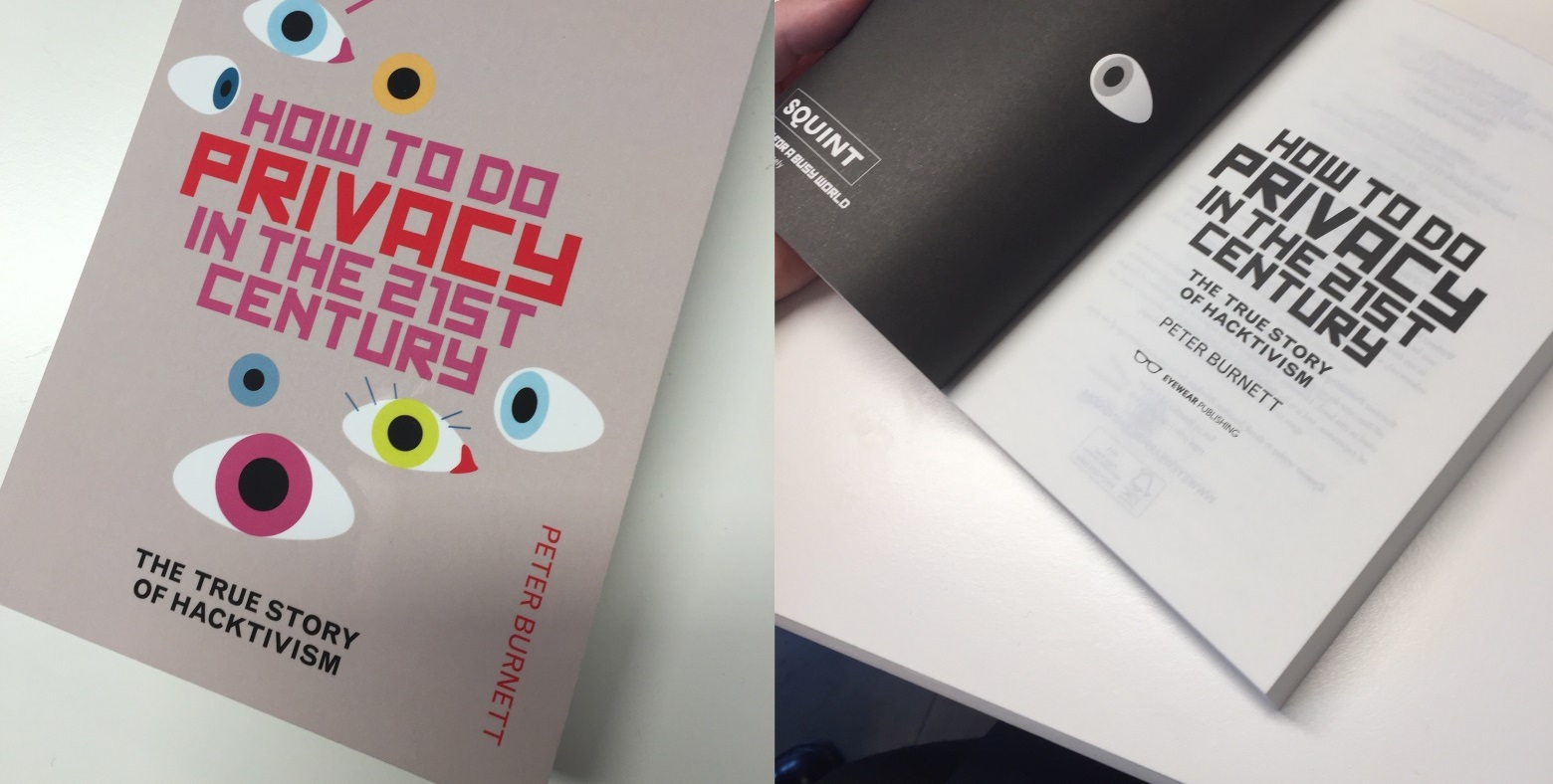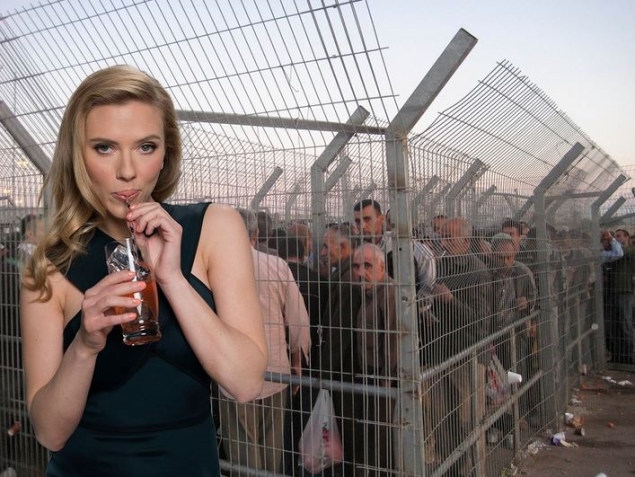Scarlett Johansson VS the Drinkers
Scarlett Johansson defends her paid promotion of SodaStream, which has its factory in the Israeli settlement of Ma’aleh Adumim, in Occupied Palestine.
Oxfam, for whom Johansson is an ambassador of sorts, said in a statement on their website that while they respect the independence of their ambassadors, they oppose all trade from Israeli settlements, on the grounds that these settlements are illegal and deny Palestinian rights.
Oxfam’s tactful statement is here: http://www.oxfam.org/en/about/ambassadors/scarlett-johansson.
The statement makes graceful nods towards Scarlett Johansson’s busy schedule, but as we shall see, Johansson's schedule is nothing compared to the schedules of the Palestinian workers in the Ma’aleh Adumim plant in the occupied territories of the West Bank.
In response to criticism from Oxfam, Scarlett Johansson stated thus:
"SodaStream is not only committed to the environment but to building a bridge to peace between Israel and Palestine, supporting neighbours working alongside each other, receiving equal pay, equal benefits and equal rights."
Here are 10 ideas Scarlett Johansson should have been aware of before she aided SodaStream:
1.
SodaStream who run the factory in Ma’aleh Adumim that Scarlett Johansson is so proud of, pays its taxes to the Israeli government and not to the Palestinian Authority. That means that the profits of the company benefit the Israeli economy and not that of the local Palestinians.
2.
The property tax paid by the production facility Scarlett Johansson sees as saving the West Bank is paid to the Ma’aleh Adumim Municipality where it is used to support the development of the settlement.
The funds that the Ma’aleh Adumim settlement collects from SodaStream are used for the construction of roads, education services, sewage treatment, and other services and facilities that benefit only illegally settled Israelis — so when you buy a SodaStream product, you are contributing to the Israeli settlement project.
A real case of 'Just Sayin'.
3.
The registration statement by SodaStream, filed with the American Securities and Exchange Commission does in fact list boycott campaigns as a significant ‘risk factor’ in having the factory where it is.
That's just as well, because a boycott is already underway. The location of the factory on occupied land is described in the same registration document as causing ‘rising political tensions and negative publicity,’ and the company adds that it ‘may negatively impact demand for our products’.
Another ‘risk factor’ the statement mentions is the new legislation by the Palestinian Authority, which may prohibit Palestinians from working for Israeli companies located in the West Bank.
4.
The Palestinian residents of the West Bank who work in settlements are occupied subjects and thus they do not enjoy civil rights, and depend on their employers for work permits.
The main criterion for receiving such a permit is a ‘security clearance’, which attests that the worker’s personal record in the Israeli security forces records is clear of any action or pronouncement which is defined as endangering Israel’s security.
Involvement in a labour disagreement with an employer is predictably defined as a security risk, and so workers risk their work permit if they demand anything of their employers. By losing this permit, workers do not only lose their current employment, but also lose the ability to work in settlements in the future.
via http://wobject.tumblr.com/
5.
During recent years, there have been occasions on which workers complained about low wages and poor working conditions, and about ‘revolving door’ employment policies in the SodaStream plant.
Kav LaOved provided a report on this in April 2010 which quotes a worker as follows: “I’ve been working for almost two years, and every few months there’s a problem: workers are let go, and new ones brought in. We work hard to stay at the factory, but we feel insecure. There are rumours they’ll be hiring workers to replace those fired.”
Following appeals to the contractor to increase their salaries, the Palestinian workers decided to hold a protest at the factory, hoping to improve their work conditions, including their wages, which were far below the minimum wage.
Kav LaOved stated at the time of this protest, after meeting with workers from the factory: "The Palestinian workers say that they are being discriminated against, they don’t even earn half of the minimum wage and the work conditions are terrible. If they demand their rights they will be fired. It is like this in many factories in this area but Soda Club’s factory is one of the worst."
6.
At that time, and in reaction to the protest, 17 Palestinian workers were fired, and then were rehired with better conditions — but only following the publication of the story in the Swedish press and the intervention of Kav LaOved.
However, according to Kav LaOved’s report of March 2010, Palestinian workers continue to be ‘at the bottom of the hierarchy in the factory and remain fearful of dismissal’.
In March 2010, the Palestinian workers were fired again, allegedly because SodaStream wanted to hire them directly and not through a subcontractor. The workers told Kav LaOved that the Israeli subcontractor which employed the Palestinian workers, demanded 6,000 shekels (approx. 1,250 Euros) from each worker for their ‘release’ from their contract. The Israeli subcontractor denied these claims.
However, on April 16, 140 Palestinian workers who were employed by SodaStream through the Israeli subcontractor were fired and were not paid their March salaries. When the workers returned to the factory to collect their salaries, SodaStream called the security personnel of the settlement, and expelled the workers from the factory and to keep them off the premises and out of the industrial zone.
7.
The Mishor Edomim Industrial Park on which the SodaStream factory stands constitutes a permanent infrastructure, which serves the settlement of Ma’aleh Adumim and the Jerusalem area, as well as Israeli businesses and workers. Scarlett Johansson, you know this!
This settlement and its industrial park persists despite international law, which prohibits occupying powers from constructing permanent infrastructures in occupied territory, unless they are for military use or for the benefit of the local population.
There is no documentation anywhere which states that the development of Mishor Edomim is anything other than an industrial park for Jerusalem.
Many parts of Mishor Edomim are located on private Palestinian land. Israel assumed control over these lands using a procedure called Expropriation for Public Purposes. It allows the occupying power to expropriate land to serve the local population. This expropriation evidently was not used to serve the local population, which not only renders it illegal according to international law, but also according to Israeli military law.
8 .
In exporting settlement products to Europe as labelled ‘MADE IN ISRAEL’ SodaStream are mislabelling their goods, and committing fraud.
In June 2000, the EU-Israel Association Agreement came into force. The agreement defined Israeli goods as exempt from customs fees, although The West Bank, East Jerusalem, Gaza and the Golan Heights are not recognised as part of Israel by EU member states.
However, Israel applied the agreement to the occupied territory creating a dispute between Israel and the EU. This dispute was resolved in August 2004, when Israel agreed that Israeli goods would be marked with their place of origin so that the customs authorities of the EU member states could distinguish between products from the settlements and products from inside Israel. An unknown amount of goods produced in settlements are still exported as Israeli products.
On February 25, 2010, the European Court of Justice ruled that goods produced in settlements in the occupied West Bank must not be considered as made in Israel. Mislabeling of settlement products raises the issue of consumer fraud.
9.
A frequently cited example of workers being denied rights are claims made by SodaStream relating to workers’ freedom to practice prayers. Scarlett Johansson you know this too! In the SodaStream-produced video promoting the factory at Ma’aleh Adumim a ‘mosque’ is shown, although workers at the plant have since confirmed this is in fact a locker-room.
Workers claim that discrimination against the Muslim workers is common and that they are denied their right to practice their religion, with one worker claiming that supervisors had ‘even hidden the carpets from the workers’ in an attempt to prevent them from praying.
Restrictions on are also severe on the assembly line, where nearly 100% of the West Bank Palestinians employed in the factory work. A worker explained that they are only allowed to pray if prayer times fall ‘during their lunch break,’ otherwise ‘they are not allowed to pray at all.’
10.
Despite what Scarlett Johansson says, there is no extra pay for overtime or night shifts in the SodaStream factory in Occupied Palestine, in violation of Israel’s Hours of Work and Rest Law, which applies to Israeli workers in the plant.
According to the Israeli Hours of Work and Rest Law, a working day ‘shall not exceed eight working hours’ and shift workers ‘shall not be employed for more than one hour of overtime per day, and that the average for three weeks shall not exceed 45 working hours per week.’
Occupied Palestinian employees work on a ‘four-two’ system, meaning that they work for four days, 12 hours per day, with two days off — totalling 60 hours of work in a seven-day period.
None of the above was difficult to research; in fact most of us know most of it, anyway. More can be found at any of the following:
- WhoProfits.org study: A Case Study for Corporate Activity in Illegal Israeli Settlements
- This is a good article on Scarlett Johansson on Wide Asleep in America.
- I swiped the image used for this article from Wobject on Tumblr.
- Kav LaOved provided a detailed report on workers rights at SodaStream
- This is an article from Electronic Intifada which is thorough.
- This article SodaStream Lies to Keep products on British Shelves is also good.
- Here is a Corporate Watch response to SodaStream.





